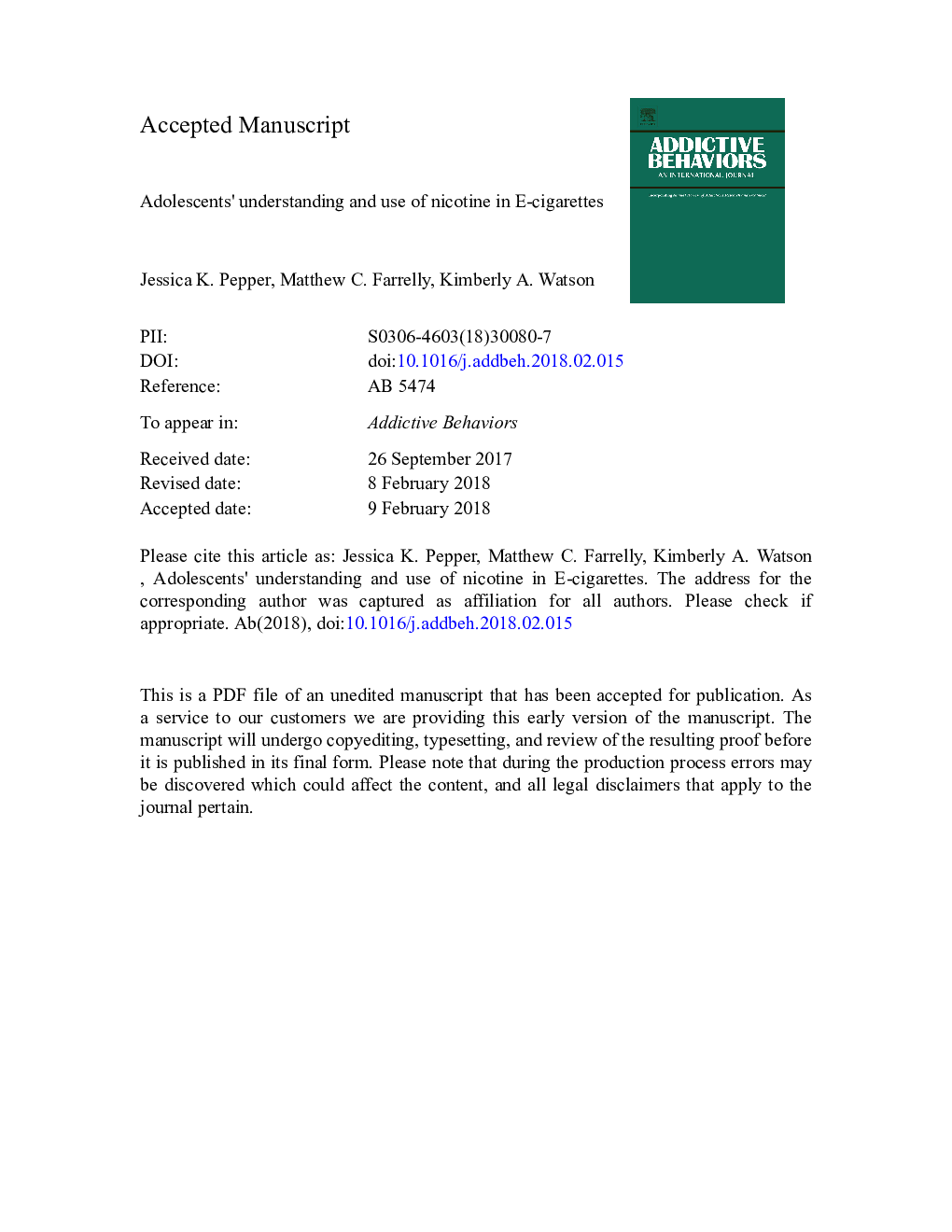| Article ID | Journal | Published Year | Pages | File Type |
|---|---|---|---|---|
| 7259308 | Addictive Behaviors | 2018 | 20 Pages |
Abstract
The adolescents who reported usually using e-cigarettes without nicotine had poorer knowledge of e-cigarettes. This lack of understanding could contribute to inaccurate reporting of nicotine use. Most youth thought the nicotine in e-cigarettes was artificial, potentially indicating a belief that this nicotine is “safer.” The US Food & Drug Administration will require nicotine warnings on e-cigarettes in 2018; a complementary educational campaign could address youths' misperceptions about nicotine and other chemicals in e-cigarette aerosol.
Keywords
Related Topics
Life Sciences
Neuroscience
Behavioral Neuroscience
Authors
Jessica K. Pepper, Matthew C. Farrelly, Kimberly A. Watson,
